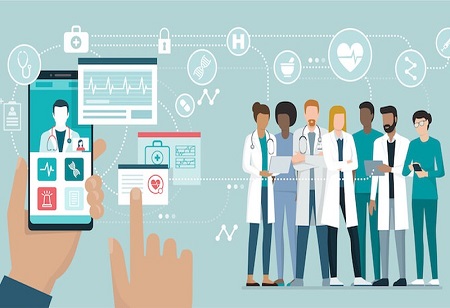Janifha Evangeline | Friday, 14 October 2022

Pharmaceutical companies possess a huge amount of responsibility, when it comes to the manufacturing of drugs. Discovering new drugs as well as developing them coupled with a few other tasks such as targeting a particular patient populations, running clinical trials as well as evaluating drug efficacy are only a few of the many tasks which the pharmaceutical sector faces on a daily basis.
The reason why data collection & analytics are crucial for process of drug development is that without any reliable data, the pharmaceutical sector will not exist & consumers will doubt the effectiveness of medicine. Therefore, having the ability for making data-backed decisions is crucial for the success in this sector. Pharma analytics comprises harnessing the power of data analytics for enhancing operations in the pharmaceutical sector. Leveraging analytics software for augmenting the data collection as well as analysis process enables pharmaceutical firms to nor only work faster but also more efficiently for delivering products to market & increase the profitability.
Integrating big data analytics solutions into the pharmaceutical manufacturing The pharmaceutical sector holds a longstanding history of depending completely on empirical data for drug development as well as distribution. But, organizing through all this data is not an easy task. Therefore, it makes the sector to move toward modern solutions that include Pharma analytics software for gaining deeper insight into critical data. The major advantage of integrating big data analytics solutions into the pharmaceutical manufacturing process makes the firms to not only gain valuable insights for not just augmenting the process but also optimizing the production capacity.
Pharmaceutical manufacturers can integrate data analytics in every single step of the drug development process, right from the initial process of research & discovery to development process to clinical trials.Therefore, Pharma analytics facilitates enterprises to gain greater insight into consumer demand, drug efficacy as well as other factors which are highly essential to the overall performance. Pharma analytics enables pharmaceutical enterprises to enhance their decision-making throughout every process right from the drug development to the marketing processes. Therefore, integrating advanced data into everyday operations lets the pharmaceutical companies to make more informed business decisions & enhance the overall results.
Polestar Solutions helps in using the correct solutions
for setting up the success with analytics. The experts of the company understand the exact problems that are faced by pharma firms & have deployed the right analytics systems which facilitate in deriving an impact from your data analytics use cases.
Optimizing the efficacy of clinical trials Clinical trials are not just expensive but they are time consuming as well to run & pharmaceutical enterprises look forward to make sure that they have the perfect mix of patients for any given trial. Hence, Big data can help to identify the right number of patients for participating in a trial via analysis of demographic as well as historic data, and others such as reviewing previous clinical trial events, remote patient monitoring, and also helping them to identify the potential side effects even before they become a reality.
Abiogenesis Clinpharm has been facilitating pharma firms to revolutionize their ideas as well as concepts to successful products. The company is a highly-focused team of professionals that understand how to prepare, manage and conduct clinical trials. McKinsey states that big data could also help pharmaceutical firms to take into account several factors, that include genetic information, and enable organizations in identifying niche patient populations in order to accentuate & reduce costs of trials.
Target specific patient populations more effectively With information gathered from genomic sequencing, medical sensor data & electronic medical records which are readily available, pharmaceutical firms have the capability to get into the root causes of particular pathologies & they realize that 1 size really does not fit all. Within any disease or any condition several patients will respond differently to treatments. Merging via the data from these sources can let drug companies to spot trends as well as patterns which will make them come up with several targeted medications for patients who share common features.
For example, Pfizer is merging data from various sources such as clinical trial, genomic data and electronic medical records, for spotting opportunities for "drugs for specific populations". By leveraging this approach the Pfizer was able to find out that a small subset of lung cancer patients had a particular genomic defect.
The way ahead "Data is the new natural resource’ and in the times to come, data is what will be the biggest differentia¬tor. Pharma industry is no different and will be highly influenced by the data," states Rajaram Iyer, VP, Mankind Pharma. Humungous amounts of data that organizations can tap comprising information from remote sensor devices - along with advanced analytic models, show that pharmaceutical production companies can gain better insights into current patient behavior. The organizations can then leverage that data to design services targeted to several demographics or at risk patient groups for enhancing the efficacy of treatment.